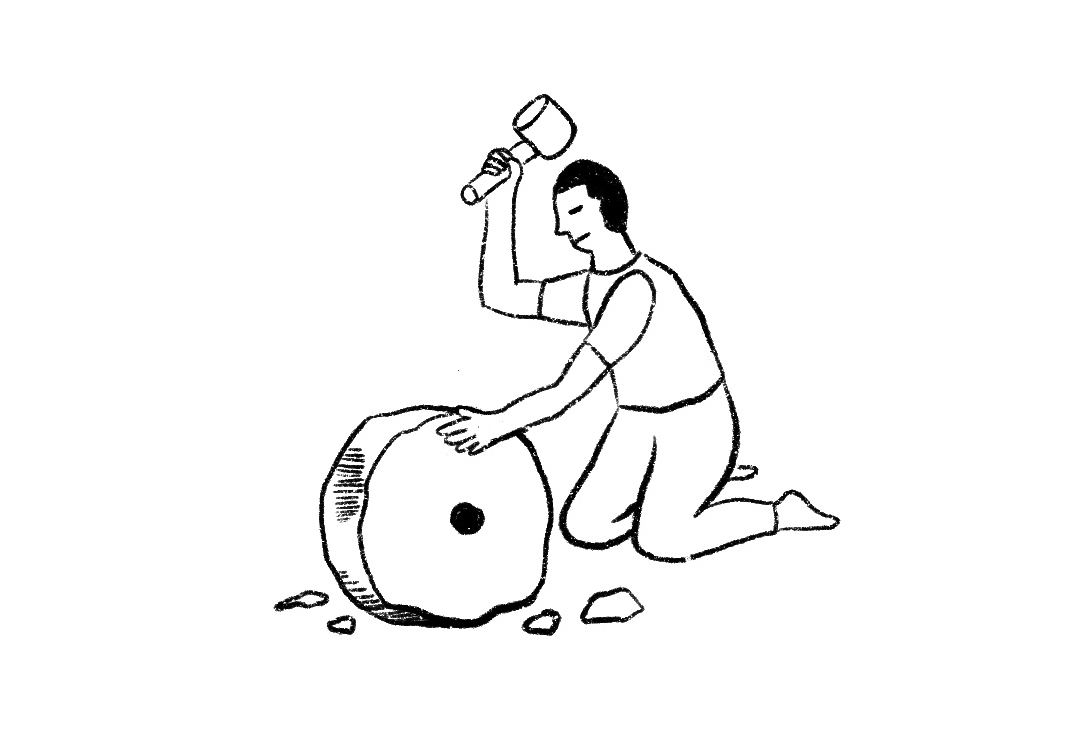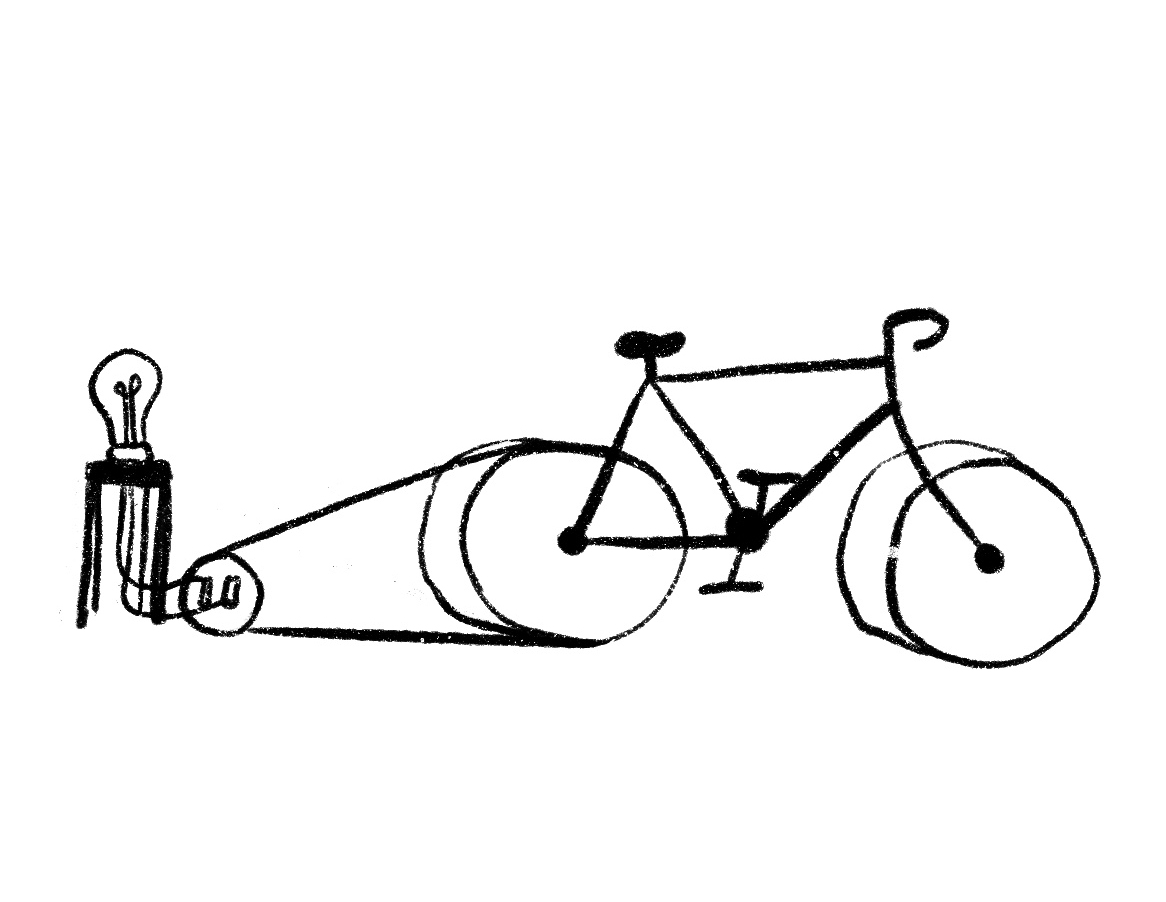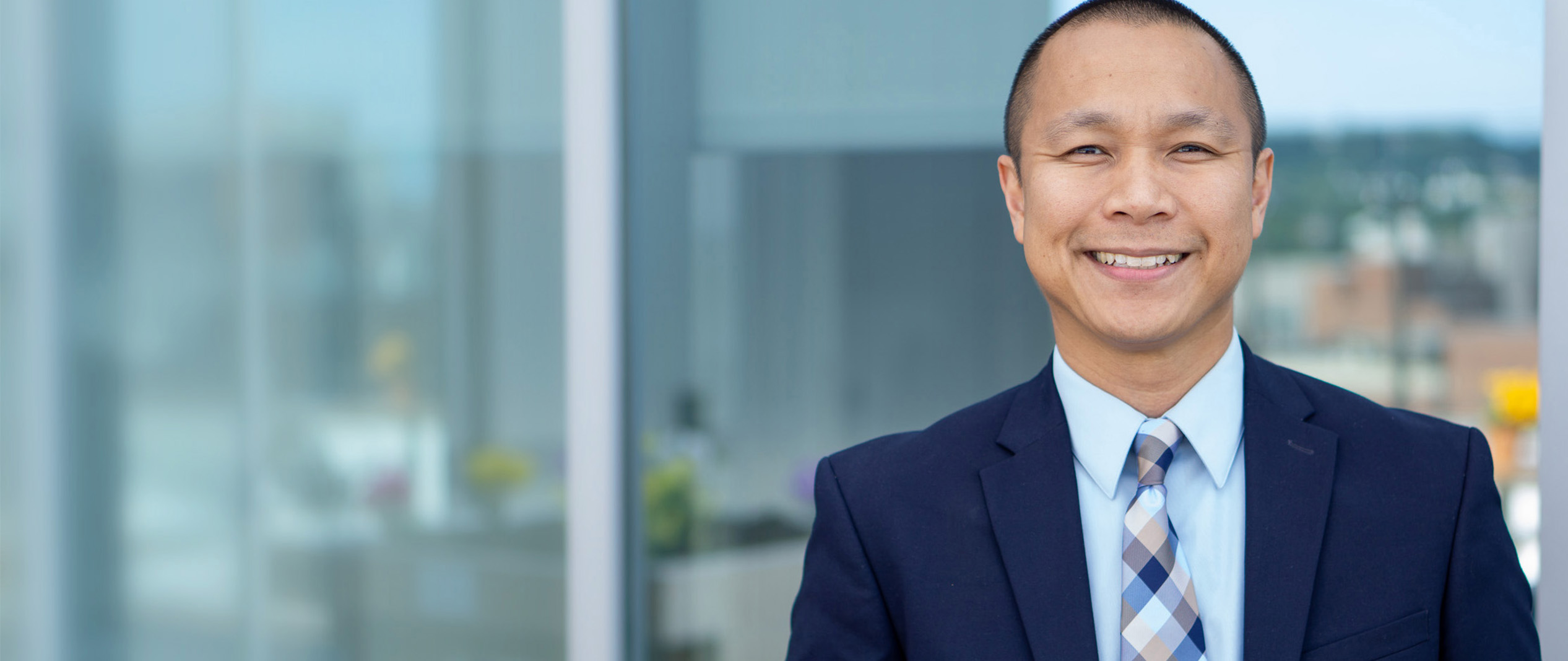On any given day at UAB Hospital-Highlands, Berdale Colorado, D.O., MPH, might be helping a ballet dancer recover from a foot injury, performing a platelet-rich plasma injection on a tennis player’s elbow, or diagnosing a nerve injury.
While he scans patients with the ultrasound machine, he walks them through what he sees on the screen and points out any abnormalities. For Colorado, these are not just injuries; they’re obstacles keeping people from what they love. Whether it’s a stage, a court, or a long-awaited family trip, his goal is to help patients get back to their physical activities—with less pain and improved function.
Colorado is a national leader in nonoperative musculoskeletal medicine. His work spans sports medicine, electrodiagnostics, regenerative treatments/ortho-biologics, and interventional spine procedures. His roles at UAB include associate professor and vice chair of Education in the Department of Physical Medicine and Rehabilitation (PM&R), assistant dean for Student Experience in the Heersink School of Medicine, chief of Sports and Musculoskeletal Medicine, PM&R Residency Program Director, and now program director for the new Interventional Spine and Musculoskeletal Medicine Fellowship.
 When Colorado began using ultrasound with electrodiagnostic testing (EMG) at Washington University in St. Louis over a decade ago, little did he know how valuable the combination would be in the diagnosis of nerve disorders.
When Colorado began using ultrasound with electrodiagnostic testing (EMG) at Washington University in St. Louis over a decade ago, little did he know how valuable the combination would be in the diagnosis of nerve disorders.
“Case after case, the ultrasound findings would be crucial to the diagnosis,” Colorado said. Soon, his surgical colleagues would routinely request ultrasound with the EMG. Before long, Colorado began presenting nationally and publishing articles on the topic. He was one of the first physicians in the country (and currently one of only two physicians in Alabama) to be board-certified in both neuromuscular ultrasound and electrodiagnostic medicine by the American Board of Electrodiagnostic Medicine.
When Colorado arrived at UAB in 2022, he saw an opportunity to reimagine musculoskeletal medicine training in the PM&R Residency Program. He created a new ultrasound curriculum, introduced a case-based EMG simulation curriculum, and expanded opportunities for sports medicine and spine education. “We’re training future leaders in PM&R,” he said. “We need to incorporate the newest technology and integrate different teaching strategies.”
In 2025, Colorado founded the UAB Interventional Spine and Musculoskeletal Medicine Fellowship, which welcomed its first fellow this year. The program, one of the few of its kind in the country, offers advanced training in electrodiagnostics, ultrasound, spine procedures, and musculo-skeletal medicine. And he’s not stopping there. Colorado hopes to help develop multiple fellowships in the PM&R department—a Spinal Cord Injury Medicine Fellowship is already in the works, aiming to launch in 2027.
Colorado’s dedication to training and mentoring has been recognized with several recent accolades, including the Accreditation Council for Graduate Medical Education’s Courage to Teach Award, the Early Career Academician Award from the Association of Academic Physiatrists, and the Innovators and Influencers Award from the American Academy of Physical Medicine and Rehabilitation.
Colorado’s passion for sports medicine and promoting the health of individuals with disabilities led him to the world of adaptive sports, where he’s helped rewrite the rules—literally. As chair of the Medical Subcommittee for the USA Wheelchair Football League, Colorado helped create the league’s new classification system. This ensures fair competition between people with different functional abilities in adaptive sports.
 Colorado’s adaptive sports journey started during his residency. While covering a local wheelchair rugby tournament, he recognized one of the athletes as a patient he had taken care of during acute inpatient rehabilitation from a spinal cord injury. “Knowing some of the struggles that the athlete had gone through during his inpatient rehabilitation to now enjoying sports was one of the most impactful experiences of my residency,” Colorado said.
Colorado’s adaptive sports journey started during his residency. While covering a local wheelchair rugby tournament, he recognized one of the athletes as a patient he had taken care of during acute inpatient rehabilitation from a spinal cord injury. “Knowing some of the struggles that the athlete had gone through during his inpatient rehabilitation to now enjoying sports was one of the most impactful experiences of my residency,” Colorado said.
When Colorado established the Performing Arts Medicine Program at UAB, he drew on his firsthand knowledge of the unique physical demands and health challenges that performing artists face. As a former church organist and with children involved in dance and music for years, he understands the need for an individualized treatment plan to return to performance.
“Unfortunately, specialized medical care for performing artists is not readily available across the country,” Colorado said. “This program ensures that dancers, musicians, and other performing artists in the Birmingham area have access to the highest quality specialized care.” The program is now the official medical provider for the Alabama Ballet, Samford University School of the Arts, and UAB Dance/Cheer.
Colorado’s father, grandfather, and great-grandfather were all pastors. While he did not enter the ministry himself, he views medicine as more than just a job—it’s a calling. He strives to provide compassionate care to help patients achieve their goals and improve their quality of life. “Faith and family have been the most important parts of my journey in medicine,” he said. “The love and support of my wife and three kids have allowed me to pursue my passions.”
In a field that’s constantly evolving, Colorado’s approach to innovation is simple: Stay curious and ask questions, develop your passion, and always keep the patient at the center.
Read other stories
